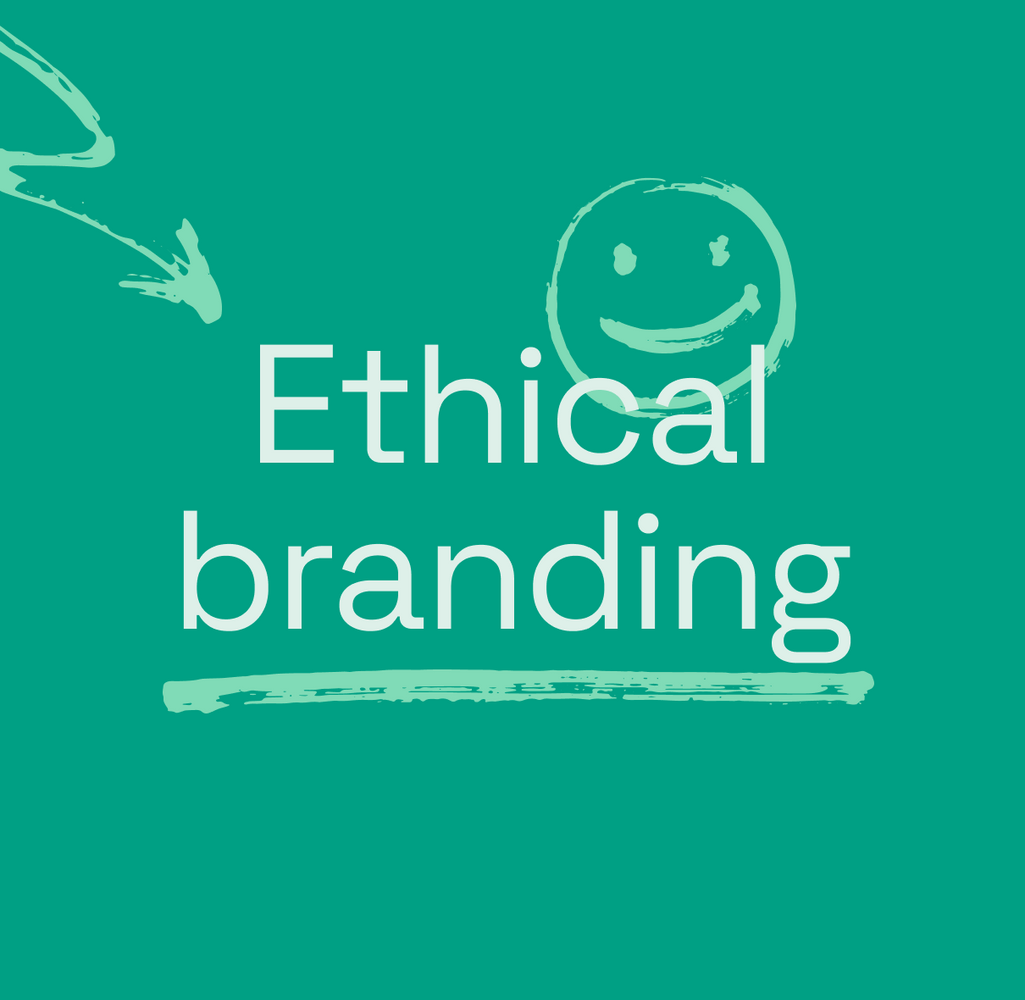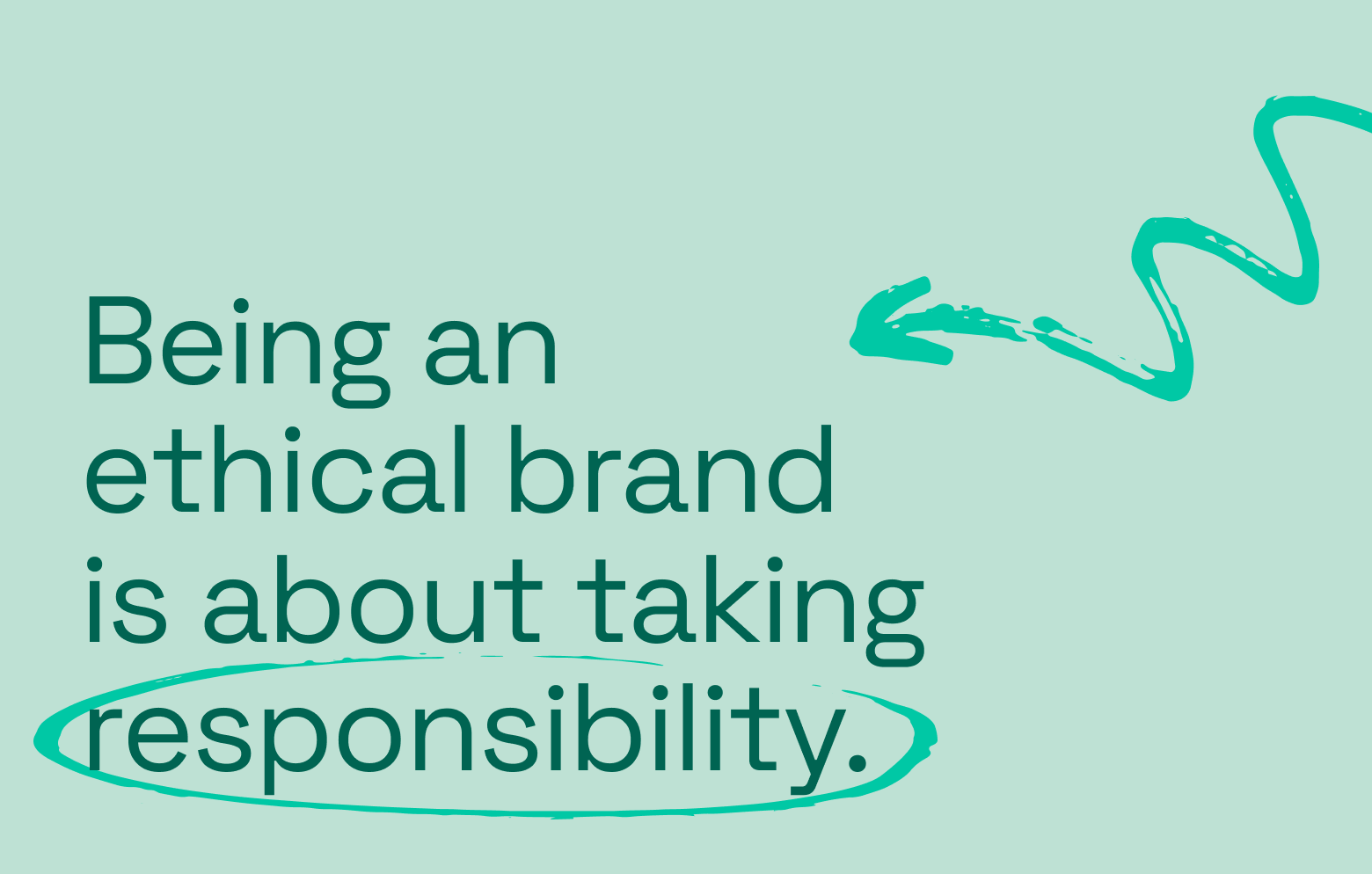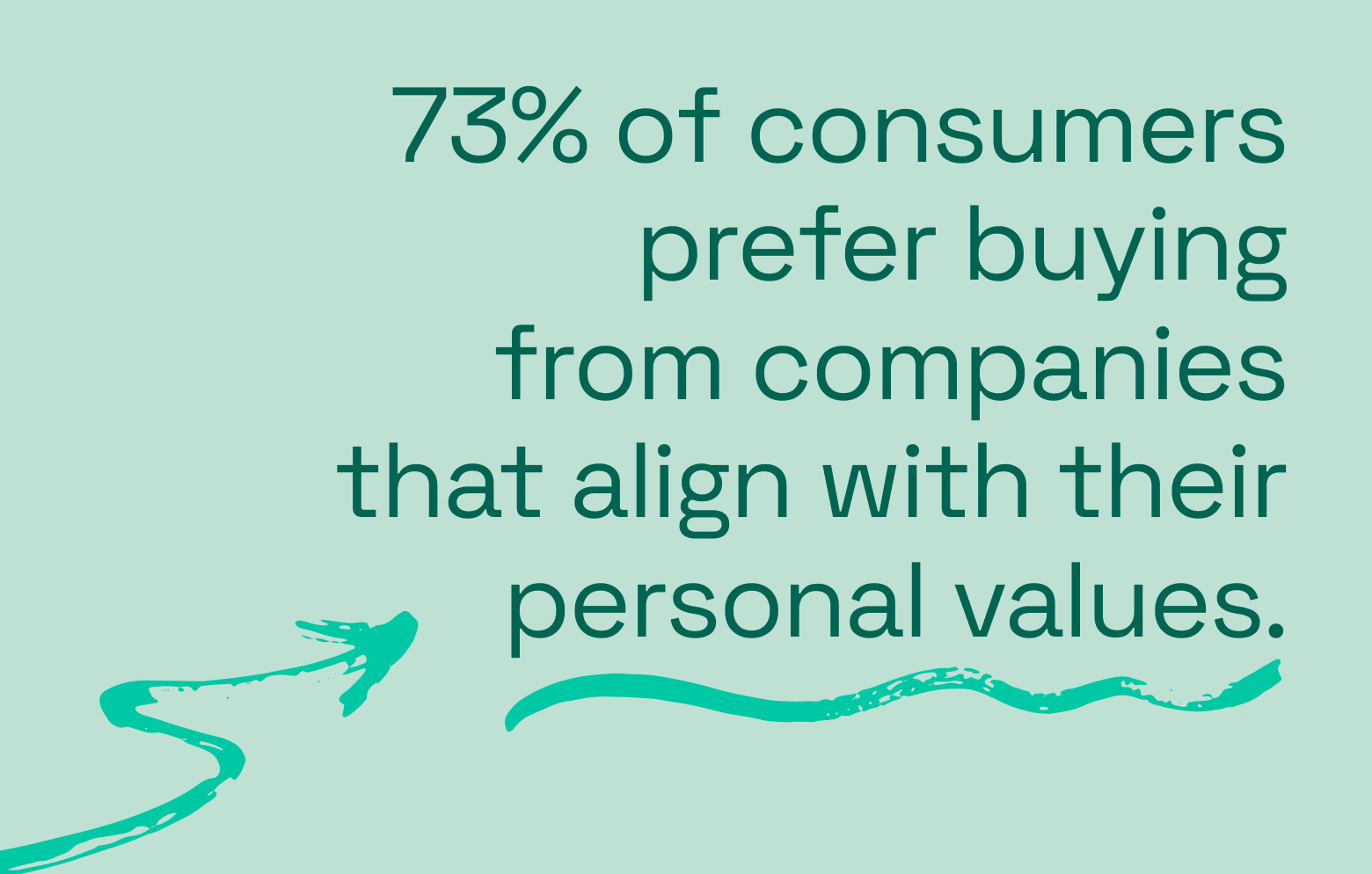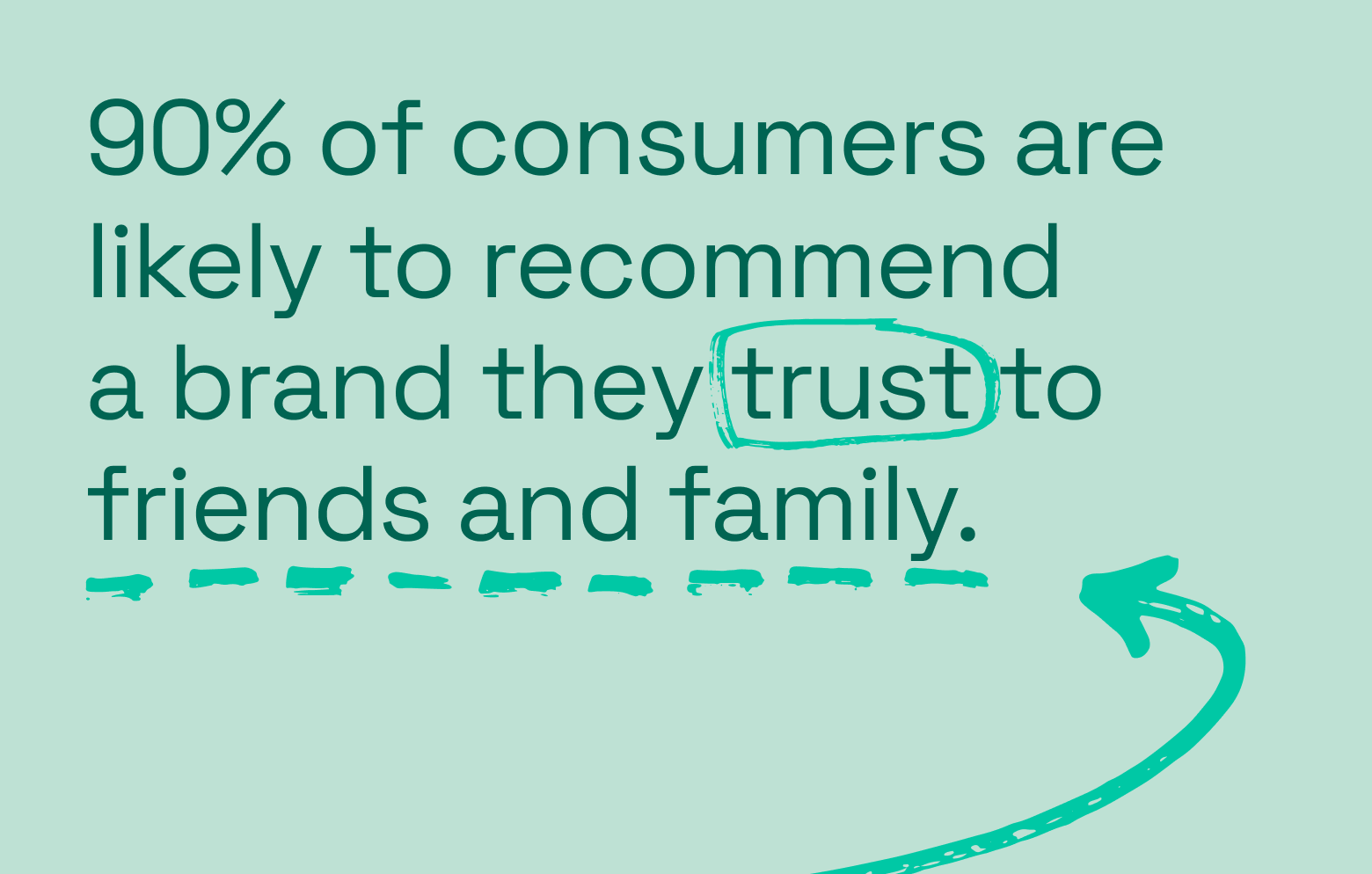
What is ethical branding, and why is it important?
Brand ethics refers to a company's moral principles and values that guide its actions. It's crucial because ethical behavior builds trust, fosters loyalty, and contributes to a positive impact on society, aligning business success with social responsibility.
Conservation charity WWF UK is well-known in the UK for its work tackling climate change, protecting endangered species, and championing sustainability initiatives. But in early 2022, it drew extensive criticism online when it announced plans to sell non-fungible tokens (NFTs). It aimed to use digital artwork and collectibles to raise money for its conservation work. But as the charity learned more about the environmental impact of minting and selling NFTs, it decided not to continue the trial.
This is a recent example of ethical branding in action. The company learned its activities went against its values and decided to change course.
As the backlash against WWF UK shows, brand ethics are increasingly important to consumers. You need to understand the benefits of building an ethical brand, so you can decide whether a values-first approach is right for your company.
What is ethical branding?
Ethical branding is the process of building a brand and company based on values and actions that are morally right and ethical.
For example, ethical brands don’t harm people, animals, or the environment. They pay attention to the impact their products (including production and manufacturing processes) have on the people and world around them. Overall, they aim to contribute to society in a responsible, sustainable way.

On a recent episode of our podcast, the Snask team talked in detail about ethical branding, explaining that “being an ethical brand is about taking responsibility.” This includes:
- Economic responsibility. Caring about the company’s economic impact on its employees, partners, and customers. For example, paying employees equally and fairly, paying contractors on time, and following fair pricing practices for their products.
- Social responsibility. Caring about the company’s impact on the society and community in which it operates. For example, if its manufacturing facilities provide jobs for local people or its daily operations disrupt its community.
- Environmental responsibility. Caring about and working to reduce the environmental impact of their products. For example, they could work to reduce waste from their manufacturing process or only use sustainable materials in their products.
Ethical brands often share three similar characteristics:
- Transparency. Ethical brands are often more transparent about their work, products, and processes because they have nothing to hide from employees, customers, or the media.
- Values-driven. They bring their values to life at all company levels, from C-suite to intern. This is also true for all aspects of the business, such as sourcing materials, product manufacturing, marketing activities, and hiring practices.
- Committed to doing the right thing. Ethical brands have a clear sense of “wrong” and “right.” They focus more on doing what’s right rather than cutting corners, adopting less sustainable processes, or abandoning their values in favor of increased profits.
As a result, consumers see ethical brands as more trustworthy, and their products are often more desirable because customers feel good about supporting them.
Listen to the full podcast episode: "Why ethical branding matters" with Gia Stridbeck and Freddie Öst, Snask.
The benefits of strong brand ethics
Ethical branding can be a true differentiator for your company as it helps you develop strong connections with both your customers and employees. Let’s examine some of the main benefits of building an ethical brand.

Help your brand stand out from the competition
Your product alone isn’t a strong or long-term differentiator for your brand. Competitors can add new features or replicate the look of your products relatively easily. Your brand ethics can help differentiate your brand in a crowded market because it’s harder to replicate your company’s values, ethics, and behaviors.
According to 5W, 73% of consumers prefer buying from companies that align with their personal values. Having a shared set of values and principles helps you build a stronger connection with consumers, making them more likely to think of you than a competitor.
Similarly, Accenture found that 74% of consumers think ethical corporate practices and values are important reasons to choose a brand. Ethical branding helps your company become known for something more than just its products. They help build brand awareness and recognition, so you stand out for all the right reasons.
Improve customer retention
Ethical branding helps you retain existing customers, not just appeal to new ones. Accenture’s research found that 64% of consumers believe “companies that actively communicate their purpose are more appealing than those that do not.” In other words, your brand’s values and ethics matter to your customers and help strengthen their relationship with your brand.
Customers develop stronger relationships with companies if they believe in (and share) your values. These shared values, along with high-quality products, encourage people to choose your brand again and again. Salesforce found that 62% of consumers feel emotionally connected to the brands they buy from most frequently. That emotional connection, built on shared values, turns people from one-time purchasers to long-term, loyal customers.
Increase word-of-mouth customer recommendations
Consumers often see the brands they choose as a reflection of their own values. If they’re happy with your product and feel like your brand values align with their own, they’ll likely have a high level of trust in your brand.

Brand trust is a crucial ingredient in word-of-mouth recommendations. According to research by Morning Consult, 90% of consumers are “likely to recommend a brand they trust to friends and family.”
Similarly, if you’ve been recommended a product by someone in your network, sharing its values and ethics can influence your decision to buy it. Clutch found that 75% of people are “likely to start shopping at a company that chooses to support an issue they agree with.” So an ethical brand increases the chances that people will want to recommend your brand to their friends, and that people will act on those recommendations.
Make it easier to find and recruit new employees
An ethical brand doesn’t just help you appeal to potential customers. It also enables you to connect with potential employees. Ethical brands are likely to be more attractive to job-seekers — particularly millennials and Gen-Z employees, who often look for employers that align with their beliefs and values.
Ethical brands are often vocal and transparent about the causes and values that are most important to them. This can help you develop a recognizable employer brand, making your company more appealing to people with similar values, interests, and priorities.
Brand values also heavily influence your decision-making around growing and investing in the business. By sticking to your ethics as the business grows, you develop a reputation as an authentic, values-driven company, which can set you apart from other companies in your industry.
Improve employee retention
If you can maintain your position as an ethical brand and continue operating based on your original values, then what first attracted employees to your company will help retain them over time.
Research by Gallup found that only 40% of employees agree that “the mission or purpose of their organization makes them feel their job is important.” Ethical brands communicate and live by their stated values, so they’re likely to have a higher percentage of employees who believe that.
Having a shared set of values makes employees more likely to stay at your organization because they connect with your brand’s mission and purpose. Their work is more than “just a job” to them.
On the other hand, not upholding your brand ethics can damage your employer brand and make employees more likely to leave. CareerArc found that 53% of employees have left jobs because of a “poor or diminishing” employer brand.
The most important part of ethical branding: authenticity
Authenticity is the most important part of your brand’s ethics. On our podcast, Stridbeck explained, “We strive to build authentic, genuine, trustworthy brands — these are buzzwords everyone uses, but they are so important... You need to stand up for something and be authentic about it.”
Consumers are increasingly savvy, and inauthentic values can damage your brand’s reputation. It may be tempting to come up with a set of aspirational company values that sound good and look good on paper. But if you don’t live by them at all levels of the business, they’re little more than a marketing angle.
Learn more about brand authenticity: Why brands need to get real

